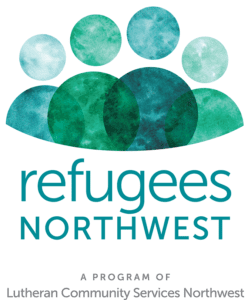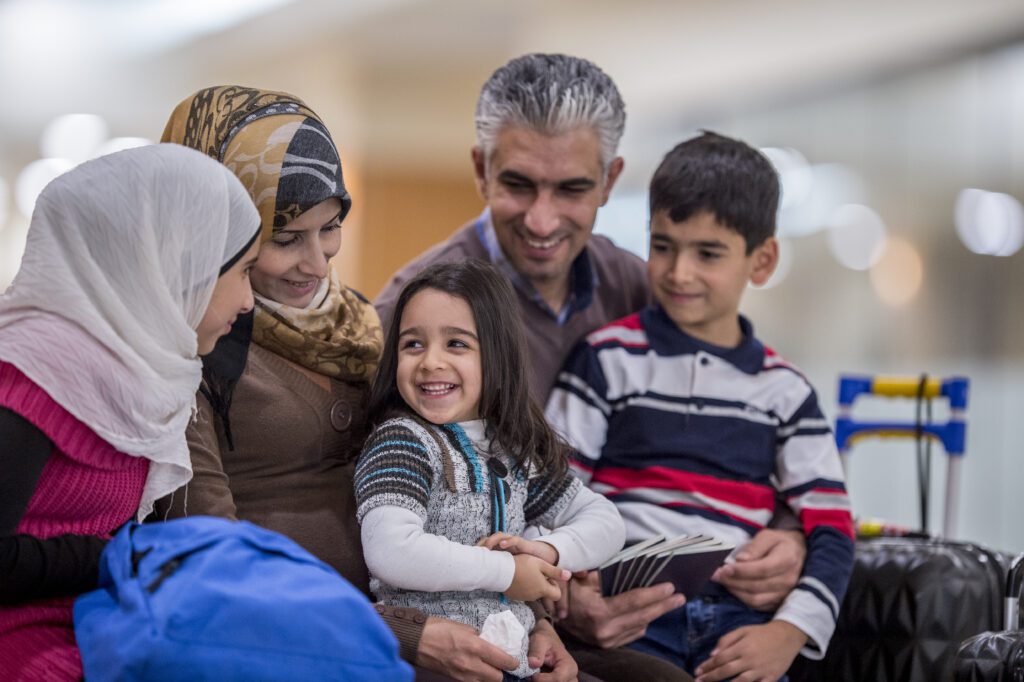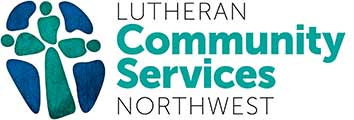Refugee and Immigrant Services
 Safety and stability in the United States is our primary goal for the Refugee and Immigrant Services program. We provide a wide range of support services including assisting community members in adjusting their status to green card holders, and naturalizing to become citizens. Every year, Refugees Northwest provides free immigration assistance to hundreds of area residents who qualify. We provide support services and a robust referral program to provide wraparound case management that impacts every aspect of our community’s lives.
Safety and stability in the United States is our primary goal for the Refugee and Immigrant Services program. We provide a wide range of support services including assisting community members in adjusting their status to green card holders, and naturalizing to become citizens. Every year, Refugees Northwest provides free immigration assistance to hundreds of area residents who qualify. We provide support services and a robust referral program to provide wraparound case management that impacts every aspect of our community’s lives. Refugees Northwest helps those seeking asylum from persecution find a path to stability and strength. Asylum seekers face numerous challenges, including not being able to work for an average of 18 months after arriving in the United States. Because asylum seekers are not eligible for any federal benefits, many are vulnerable to food insecurity and homelessness. Our Asylum Assistance program provides emergency food, clothing, and transportation assistance to help people meet their basic needs.
Refugees Northwest helps those seeking asylum from persecution find a path to stability and strength. Asylum seekers face numerous challenges, including not being able to work for an average of 18 months after arriving in the United States. Because asylum seekers are not eligible for any federal benefits, many are vulnerable to food insecurity and homelessness. Our Asylum Assistance program provides emergency food, clothing, and transportation assistance to help people meet their basic needs.
We also coordinate a pro-bono SAFE Network of physicians and licensed mental health clinicians to help asylum seekers corroborate their claim of persecution and harm. These evaluations are vital to securing safety in the United States, but are often financially out of reach for most asylum applicants. Throughout our time together, our volunteer evaluation network has performed hundreds of these critical exams at no charge.
Once individuals are granted asylum, they are eligible for numerous benefits, but often have no one to help them navigate a complicated system. Refugees Northwest helps connect those recently granted asylum to basic needs, employment resources, health care, benefits, and status documents. We also help them petition for their families so they can be reunited in the United States. Since November of 2015, over 1400 asylees from more than 20 countries have received assistance.
Asylum Assistance Program (AAP) provides wraparound case management, access to community resources through referrals and in-house services for asylum-seekers and granted asylees.
- Wraparound Services for Afghan Humanitarian Parolees provides case management services to recent Afghans paroled into the US on or after 07/31/2021.
- Wraparound Services for Ukrainian Humanitarian Parolees provides case management services to recent Ukrainians residing in Pierce County.
Asylum Housing Assistance Program (AHAP) was established to assist asylum seekers in accessing housing throughout the Greater Puget Sound area. The program provides housing navigation, system education and financial assistance to asylum seekers.
Immigration Legal Counsel and Services provides low-cost immigration counseling services to refugees, immigrants and humanitarian immigrants.
For more information, please email [email protected].

Navigating the United States medical system is a complicated process. When refugees come to the United States with complex medical issues, our team is ready to help. Our Refugee Health Promotion Program (RHPP) ensures individuals are able to get access to the medical care they need to thrive in this country. We help them better understand the healthcare system, ensure individuals are being referred to specialists, coordinate rides to and from healthcare appointments, help them apply for Supplemental Security Income (SSI), and much more.
For more information, please email [email protected]

The Cultural Orientation and Community Empowerment program helps recently arrived refugees, humanitarian parolees and granted asylees better understand life here in the United States. Our team provides educational workshops to communities on important topics including: how to get access to resources, understanding finances and taxes, your rights in the United States, learning the school system and much more.
COCE Workshops are currently held at:
Lutheran Community Services Northwest
4040 S. 188th Street, Suite 300
SeaTac, WA 98188
The second and fourth Wednesday of the month
5:00 pm – 6:00 pm
Participant Elligibility:
- Refugees, granted asylees, Afghan humanitarian parolees, and Ukrainian humanitarian parolees
- Resident of Washington State
- 16 years or older
For more information, call 206-816-3256 or email [email protected]
 Youth of All Nations
Youth of All Nations
School and the systems surrounding education can be difficult and confusing to navigate. Our Youth of All Nations program helps refugee and migrant youth, along with their parents, better understand a complex US school system. We provide service navigation and a pathway toward integration within the school systems.
For more information, please email [email protected]
Due to the termination of our federal contract, the LEAP program is suspended indefinitely. LCSNW will no longer provide legal orientation support to non-detained, unrepresented individuals and families in removal proceedings before the Seattle Immigration Court.
We are deeply grateful to the LEAP team for their dedication and compassion in serving our community. While this program is ending, our agency remains committed to supporting immigrants, refugees, and asylees through continued services and new efforts to meet evolving needs.
Additional Resources
I-589 Asylum Application:
English
Spanish
Change of Address (through the Department of Homeland Security)This form can be filed online or in person.
Change of Address (Seattle Immigration Court)
EOIR Automated Case Information
Work authorization application and instructions
